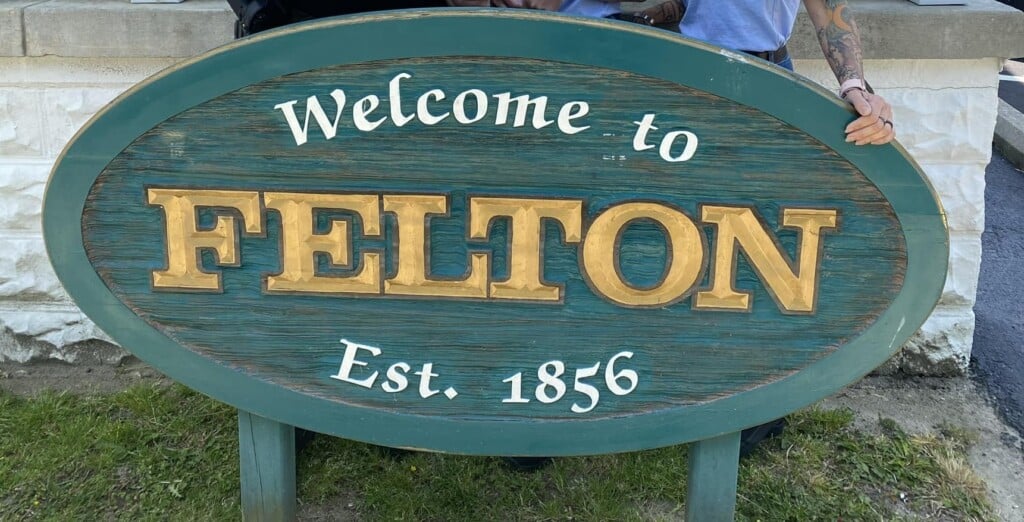Governor Wes Moore debuts ENOUGH Act in Cambridge, calling it a “Full-frontal assault on child poverty”
CAMBRIDGE, Md. – Maryland Governor Wes Moore visited the Intergenerational Center in Cambridge Monday to advocate for the ENOUGH Act. The recently introduced legislation aims to better utilize state resources, working with under-invested communities to help solve inter-generational and child poverty.
“Instead of just simply spreading money around, we’re going to target the places that are most in need of help and most in need of support, and the places that have been historically neglected in this entire time,” Governor Moore said.
The Governor cited statewide numbers, which showed that in Cambridge in 1999, one in eight children were living in concentrated poverty; however, in 2023 that number was one in two children in certain neighborhoods within Cambridge.
Governor Moore says the bill would free up grant funding of up to $10 million per year, through the newly created Governor’s Office of Children.
“We know that every child who is born into poverty has a high probability of dying in poverty. Not putting together any forms of legislation or policies that are helping to address that fact – enough,” Moore said.
Speaking at the event, alongside the governor was the president of University of Maryland Eastern Shore UMES), the local chapter president of the Boys and Girls Club, and Cambridge Mayor Steven Rideout.
The officials said they were ready to do their part, and create the community plan that the ENOUGH Act tp help prioritize and assign funds and departmental resources to help make a reality.
“Many of the communities in the schools that we’re talking about are already receiving some state funds to become a community school, because they have concentrated poverty,” said Maryland State Education Association President Cheryl Bost. “They’re also getting federal funds because they’re probably tied to one school. So now, it’s taking all of those funds, all of those needs assessments together, with the community and an additional investment from the state, and developing a concrete plan to raise the bar to eradicate childhood poverty, to deal with academic success and have metrics to chart their success.”
Governor Moore called the bill an intentional and targeted step to helping communities where generational poverty has been persistent. He said those conditions in communities like Cambridge, and across the state, were deliberately created by policymakers to set them up for failure, as was the choice to turn a blind eye to their challenges as the state flourished.
“We’ve watched Maryland’s budget increase over those past 25 years, and we’ve watched child poverty increase in many parts of the state. That’s intolerable,” Governor Moore said. “They were policy choices to underfund in certain communities, in certain neighborhoods. There were policy choices about the fact that we have known lead is a neurotoxin for over a century in this country, but we have just been incredibly intentional about which areas to deal with it in and which areas were not.”
Governor Moore stressed the most important part of the Enough Act will be its implementation. He held a closed-door roundtable with members of the community, to talk out how these programs would work.
Students from UMES and other local schools were present; attendance that Governor Moore called crucial for any plan that seeks to meet those in the community where they are, and improve their lives.
“We believe people closest to the problem, are closest to the solution, they are just rarely afforded a seat at that table,” said Governor Moore.
Community leaders from Moving Dorchester Forward, to the Delmarva Community Services, talked about getting state and local agencies to work in unison on items like after-school programming and transportation.
“Within a three-mile radius of the Boys & Girls Club, 52% of residents live at or below Dorchester County’s median household income,” said Boys & Girls Club at Leonards Lane Manager Gabriel Butler. “Like many small towns, the challenges faced in Dorchester County, and specifically Cambridge, are generational and impact our youth — but through the state’s investment, we continue to see progress for our youth and their families.”
Delegate Sheree Sample-Hughes tells 47 ABC WMDT that she has been advocating for her community under many administrations. And, she says this bill represents an opportunity for a wide range of services to make their way to the area building on what already exists in the form of UMES Science Technology Engineering Arts, Agriculture Aviation and Math (STEAM) curriculums.
“I’m envisioning that if additional funds are in the community for afterschool programs, we can interject those things of agriculture, aviation, all of those things that we talk about, that I think that it can be certainly realized here in this community,” Del. Sample-Hughes said.
State Senator Johnny Mautz tells 47 ABC WMDT that he was encouraged by the Governor’s mention of removing red tape, and looking at the data when measuring the success of a program. It’s something Sen. Mautz says would be a must for him to sign on, and vote for, the bill.
“I just want to make sure it’s not a bill that’s going to pour money into programs that don’t produce anything. You know, it has to have a metric. There has to be a result and it needs to be targeted,” Senator Mautz said.
The ENOUGH Act is part of a 16-bill 2024 legislative package, proposed by the Moore and Miller Administration.


